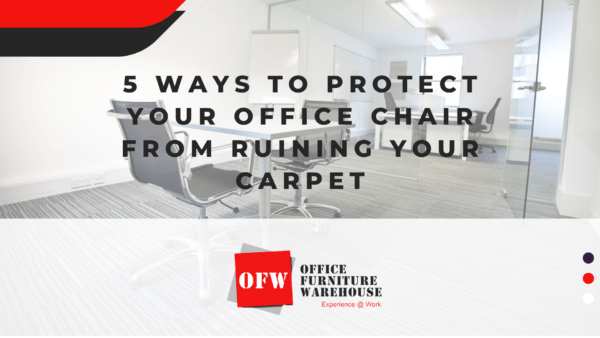How to Relocate an Office: Tips to Know

Are you currently facing the prospect of relocating your office? Then one thing you should be knowledgeable about is how to relocate an office. Office relocation meaning is quite simple; the moving of your business operations from one location to another. It is a significant undertaking that requires careful planning and execution.
As a business owner, a well-planned and executed office move can help you achieve increased productivity, improved employee satisfaction, and enhanced business growth. However, without proper preparation, it can also result in disruptions, delays, and unnecessary stress.
How to Relocate an Office: What to Consider
Before planning on how to relocate an office, it is important to understand the key factors you need to consider. Let’s look at a few of them below:
1. Budgeting
One of the first steps in the office relocation process is establishing a budget. Determine how much you can allocate for the move and consider expenses such as moving services, lease deposits, renovations, new furniture, IT infrastructure, and any unforeseen costs that may arise.
2. Location Selection
Carefully evaluate potential office locations based on factors such as accessibility, proximity to clients or customers, transportation infrastructure, amenities, and the business environment. Choose a location that aligns with your company’s goals and values, as it will impact your operations and growth potential.
3. Lease Negotiations
If you are leasing a new office space, negotiate lease terms that suit your requirements. Some main considerations include lease duration, rent, maintenance responsibilities, and any additional clauses specific to your business needs. Ensure that the lease agreement provides a solid foundation for your office relocation.
4. Timeline Planning
Creating a detailed timeline is crucial for a smooth office relocation. Break down the process into manageable phases, including informing employees, arranging moving services, packing and unpacking, IT setup, and notifying stakeholders. Allow sufficient time for each task to avoid rushing and minimize disruptions.
5. Legal Requirements
Research and comply with legal obligations related to the office relocation. This includes updating business licenses, permits, and insurance policies, as well as ensuring compliance with local zoning regulations. Seek legal advice if needed to ensure a smooth and legally compliant transition.
Tips For a Smooth Office Relocation
When looking to learn how to relocate an office, here’s an office relocation checklist that will aid your movement:
- Create a detailed relocation plan that outlines all the necessary steps, from logistics to packing, equipment setup, and communication channels. Assign responsibilities to team members to keep everyone organized and on track throughout the process.
- Provide regular office move instructions for employees, hold town hall meetings, and establish open channels for addressing concerns and questions. Keeping employees informed and involved will help alleviate anxiety and maintain morale.
- Hire office relocation services like Office Furniture Warehouse, a reliable company in South Florida to handle the physical aspects of the move. They will also ensure efficient and safe transportation of furniture and equipment.
- Involve your IT team in the planning process to minimize downtime and ensure a smooth transition of internet and phone connections, network infrastructure, and data security.
- Update your business address and notify relevant parties, such as clients, vendors, service providers, and postal services.
The above checklist will ensure that all necessary entities are informed about the office relocation, enabling uninterrupted communication, mail delivery, and business operations.
Why Relocate an Office?
Each organization’s motivations may vary, but here are some common factors that drive office relocations:
1. Business Expansion
As a company grows, it may outgrow its current office space. Relocating to a larger facility allows for accommodating a growing workforce, expanding departments, and creating room for future growth. A more spacious office environment can boost collaboration, creativity, and innovation among employees.
2. Cost Considerations
In some cases, relocating an office can offer cost-saving opportunities. Companies may seek to move to areas with lower operating costs, such as reduced rent, utilities, or taxes. A strategic relocation can lead to improved financial stability and profitability, allowing resources to be allocated more effectively.
3. Access to a Better Location
Location plays a crucial role in the success of a business. Relocating to a more desirable location can provide better visibility, accessibility, and proximity to clients, customers, or partners. Moving to an area with a thriving business community or industry cluster can also enhance networking and collaboration opportunities.
4. Upgraded Facilities and Infrastructure
Office spaces that are outdated or lack essential amenities can hinder productivity and employee satisfaction. Relocating to a new office offers the opportunity to upgrade facilities, modernize technology infrastructure, and create a more comfortable work environment.
Advanced features like improved internet connectivity, ergonomic workstations, and state-of-the-art meeting rooms can enhance employee productivity and attract top talent.
5. Market Expansion or Target Audience
Companies aiming to tap into new markets or target specific demographics may opt for an office relocation. By moving closer to their target audience or establishing a presence in a different region, businesses can gain a competitive edge, build stronger customer relationships, and seize new growth opportunities.
What is The Risk When Moving An Office?
Moving an office comes with inherent risks and challenges that need to be tackled to ensure a successful relocation. Here are some potential risks associated with office relocation and tips on how to mitigate them:
1. Delays in the Moving Process
Office moves involve numerous tasks, coordination with various stakeholders, and unforeseen circumstances. Delays can disrupt business operations and cause inconvenience. Mitigation: Thorough planning is key.
You can create a detailed timeline, allocate sufficient time for each task, and build in buffers for unexpected delays. Regularly communicate with all parties involved to ensure everyone is on track.
2. Damage to Equipment or Furniture
During the moving process, there is a risk of damage to office equipment, furniture, and other assets. This can result in financial loss and operational setbacks.
Mitigation: Hire professional office movers who have experience in handling office equipment. Ensure they use appropriate packaging materials, secure loading and unloading procedures, and proper transportation methods. Consider obtaining insurance coverage to protect against potential damages.
3. Loss of Productivity
Office relocations can disrupt normal work routines and lead to a temporary decline in productivity. Employees may face challenges in adjusting to the new environment and setting up their workstations.
Mitigation: Involve employees in the planning process, communicate the reasons for the move, and provide detailed instructions on how to prepare for the transition. Consider offering additional support or resources, such as providing temporary workspaces or arranging for remote work options during the transition period.
4. Potential Data Breaches or Loss
Data breaches or loss due to mishandling of sensitive information or equipment can have h consequences for the business, including legal issues.
Mitigation: Ensure data security measures are in place throughout the relocation process. Encrypt sensitive data, back up important files, and involve the IT team in the planning and execution of technology transfers. Consider implementing additional security measures, such as password changes or access controls, to safeguard sensitive information.
Fasten Your Office Relocation with a Professional Service in South Florida
Looking for reliable office relocation services in South Florida? Simplify your move and minimize risks with Office Furniture Warehouse. Our experienced technicians specialize in furniture installation, relocation, reconfiguration, and repairs.
With over 10 years of excellence and reliability, we take pride in providing top-quality service. From start to finish, we work with leading furniture manufacturers like Friant, Hon, Global, and Groupe Lacasse to ensure a streamlined installation process. Contact us today for a seamless office relocation experience.






